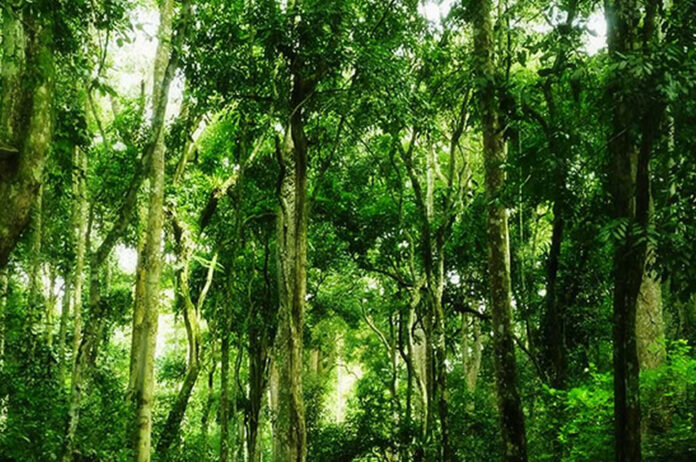The National Forestry Authority (NFA) has intensified its effort in restoring the national forest cover that is currently under threat duo to increased human activities like lumbering, bush fire and deforestation among others.
As stakeholders in environmental conservation, the National Forestry Authority manages central forest reserves totaling to 506 forest reserves seated on 1.2 million hectares across the country. Some of these forests include Mabira forest, Maramagambo forest, Budongo forest and Bugoma forest and many more.
According to Juliet Mubbi the NFA spokeswoman asserts that it’s the duty of the Forest Authority to conserve natural natural resources for the future generation. She noted that of recent there has been an increase in forest cover the following measures have been put in place;
Through the Parliament of Uganda, we have enacted relevant laws to protect the environment and they include National Environmental Act, Land Act and the Uganda Wildlife Act. We carryout filed operations on daily basis on many of the culprits have been apprehended and arraigned in courts of laws. This has been made possible because we work hand in hand with the environmental police unit to ensure forest degraders have no chance to degrade natural forests.
We have intensified efforts towards restoration of forest reserves through establishment of commercial tree plantations, to grow fast growing trees. For instance, we have six big tree plantations in regions of Bugamba, and South Busoga. These commercial tree plantations help us to reduce pressure on government forests.
We have also licensed land to private investors to grow commercial trees in degraded areas and grassland in addition to expanding tree nurseries across the country for instance 36 tree nurseries have been established across the country.
We have accelerated the distribution of free tree seedlings across the country for example 10 million trees are given out to locals every year.
We have spearheaded a collaborative forest management campaign whereby we work with communities near the forest reserves by supporting them in income generating activities like bee keeping and eco-tourism.
We have also carried out boundary forest opening to secure the integrity of the forest opening to secure the integrity of the forest so that the boundaries are clearly marked and visible. We have further established eco-tourism facilities in forest reserves for example zip lining in Mabira forest, forest walks, bird watching, chimp watching in Kalinzi and Bugoma forest.
Challenges faced
Juliet Mubbi says despite the above measures put in place to conserve the natural forest cover, there are a number of challenges and include but not limited to the following;
There is increased creation of land titles in forest reserves and consequently the authority ends in court so as to restore forest land.
There is a problem of encroachment by individuals who engage in cutting down trees. And in case, we discovered there is connivance with our field officer we discipline him/her accordingly.
There is challenge of persistent bush fire in areas of west Nile and Northern Uganda. This has been exacerbated by people on private land and have finished their land and resort to burning bushes because they want land framing.
Another challenge is under-staffing where by the 350 staff at the Forest Authority can’t adequately manage the 506 forest reserves across the country.
Mubbi further says the authority is underfunded saying to do its work effectively they need a budget of Shs 36 billion but unfortunately with the recent budget cuts in the coming financial year the authority will run a budget of Shs 25 billion.
Appeal to the public
Mubbi appeals to the general public to take forest management as a collective responsibility saying its destruction affects all of us hence it should be an individual responsibility to conserve forest reserves.

















